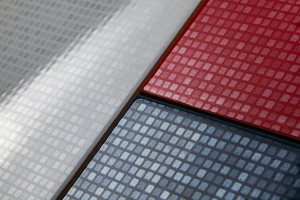| Nano Pishtaz Pars |

| Registration Date | 16 Apr 2018 |
| Revision Date | 16 Apr 2018 |
| Share |
Construction Masonry Materials
TileEffective against: Staphylococcus aureus Enterococcus faecalis Escherichia coli Pseudomonasaeruginosa
Ceramic tiles possess excellent decorative andchemical durability, and are widely used in various areas such as in thehospital environment and in every household. Unfortunately, ceramic tile itselfdoes not have antibacterial activity and microorganisms easily breed on itssurface, especially in moist environment. The existence and breeding ofmicroorganisms on the surface of ceramic tiles may harm people’s health. Nanosilver and titana nanocomposite is environmentfriendly, and does not carry any harmful toxin that might be harmful to humanbody. Moreover, Nano silver and titana nanocomposite havean antibacterial effect which can kill up to 650 different types of bacteria.Nano silver and titana nanocomposite increase immunity in animals and plants, and it also increasesresistance to viruses and bacteria. The silver nanoparticles,Titana nanocomposite and related silver ions located in the tile’s glazepenetrate the cell walls of bacteria and microorganisms, making them unable tofunction, grow and reproduce. These nanoparticles can be mixed into tile glazeas an additive. Silver capsulated with various materials are chemically durableand the release time of silver ions can be delayed for a long time so that thetile exhibits permanent antibacterial activity.